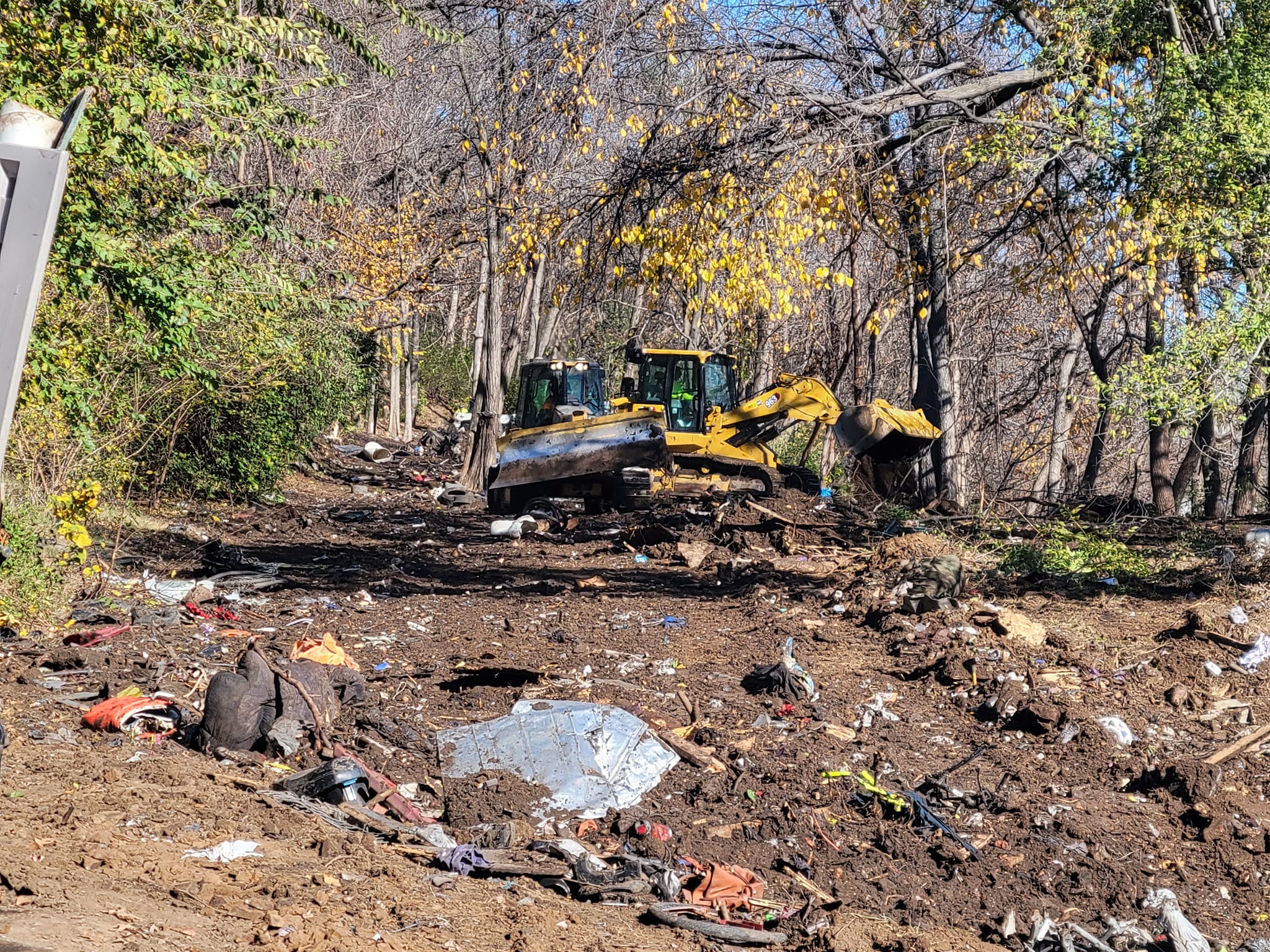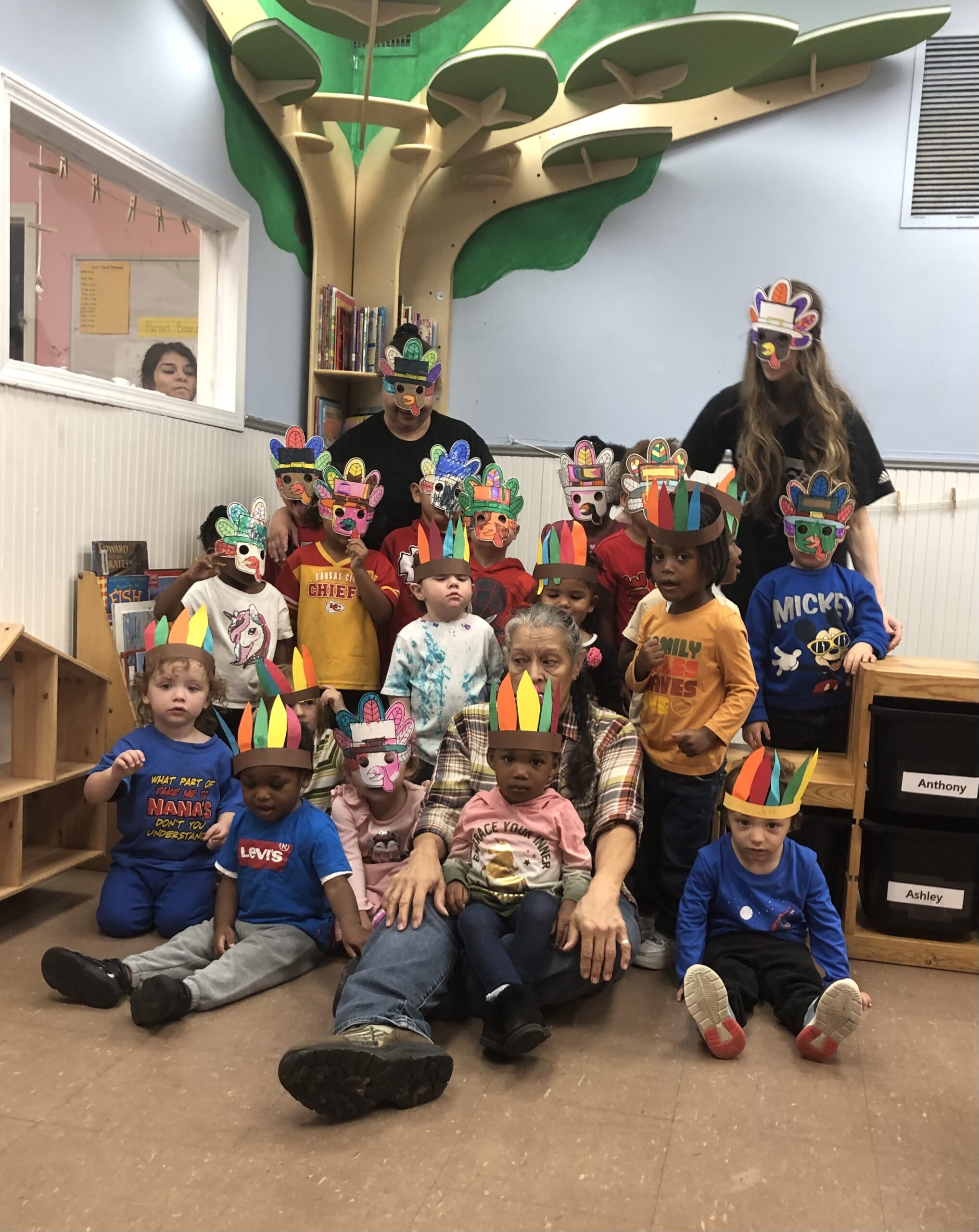
Abby Hoover
Managing Editor
The story of Healing House founder Bobbi Jo Reed may be familiar to Northeast residents or to the innumerable people who have been impacted by her life’s mission, but now her story hits the big screen in documentary film “Bobbi Jo: Under the Influence.”
After a career directing television commercials in Los Angeles, Director Brent Jones, and Executive Producer Donna Jones, were looking for a meaningful story to tell in Kansas City.
“A friend of mine said there’s this woman speaking at a church up by our house and that I had to hear her story,” Brent Jones said. “So I went up there and Bobbi Jo was speaking.
Brent said the first time he heard Reed speak, she just took the audience to the dark places in her life and then brought them out of it with her compelling story.
“That’s what a storyteller looks for is a good story that has an arc to it, and man, does Bobbi Jo’s story have an arc,” Brent said. “It’s a redemption story, let’s just call it what it is, I mean, it’s out of the dark and into the light and I think there needs to be a lot more stories told like this, and there needs to be a lot more stories about hope and what is possible and what’s not possible.”
The project began in May 2019 when Jones made his first visit to Northeast Kansas City, which is now defined for him by the Healing House. They filmed for three hours that first day, which was the first of about 40 shooting days in total.
“I came back home, we cut it together, and I said, ‘We’ve got to do this, this is amazing, this story’s amazing, this person is amazing,’” Jones said. “There wasn’t any shortage of good material out of three hours. In fact, a lot of it’s still in the film.”
Jones followed advice that he often shares with other filmmakers by doubling his schedule and his budget at the very beginning. Then, they began scheduling interviews with people who could share Reed’s story.
One person who the story of Healing House couldn’t be told without was “Mama” Judi Burkholder, who came to Healing House nine months after it was founded. First a client, she then became a helper, best friend and ministry partner to Reed before passing away earlier this year.
“Mama Judi’s with me every day, she lives with me in spirit, and everyone loved Mama Judi,” Reed said. “Mama Judi’s presence will be here forever, I believe this… she was truly my soulmate, that once in a lifetime friend.”
The small crew, which Jones called ambitious and resilient, had one or two interviews a day at Healing House, and ultimately filmed around 26 interviews. With each interview, Jones learned more about the history of Healing House and personal experiences of people coming to Healing House, finding hope and getting on the path to a better life. All but one of the 36-person staff at Healing House is a former client.
Each interview was transcribed and then the crew would go through the transcript and pull out what they needed based on a list of questions and an outline, which changed over the course of the project, and as they discovered more of the story, everything started to come together.
The producers handed over edited transcripts and notes to editors, who were simultaneously assembling footage.
“It fluctuated and changed, as documentaries do, but we learned about Healing House with the cameras rolling – and all the people and the process and everything that goes on there,” Jones said. “A documentary just has a life of its own. This story changed four or five times in big ways.”
Reed said God put her in Northeast Kansas City 25 years ago, but she left for a few years and in the meantime purchased her late mother’s home, which took three and a half years to rehab.
“God said, ‘Great job, now sell it and move to the hood,’ and back then, this was kind of the hood,” Reed said. “He would not let me have any peace. He kept drawing me to the pink and white house – Mama Judi’s House is what it’s called now – and I kept gravitating toward that place time, after time, after time.”
Reed had an inheritance, and when she finally met with the realtor, she realized it was the exact amount that was being asked for the house.
“I love the diversity of Northeast, I love the transformation that our community’s taken,” Reed said. “I remember getting here and it was not really a very safe place, initially. As time went on, it has really turned into a neighborhood.”
Reed said Northeast played a huge role in her recovery journey, and she has found family in the nearly 10,000 people who have come through Healing House since it was founded in 2003. She often thinks about all the people who have been affected by seeing someone else’s journey at Healing House.
“I went on ride-alongs with the police and everything, and they told me the history and showed me where the changes have taken place because of the Healing House, and where there are still problems that need to be worked on,” Brent said. “It really opened my eyes to what’s going on and the power of what’s happening at Healing House… I wish that could happen in every neighborhood that needs it.”
Reed believes if she knew 17 years ago what she knows now, she might have gotten scared away. However, she wouldn’t change a thing about the journey or what she’s learned along the way.
“I lived in that house with those women for 12 years and it is a lot, and it’s like a mama bird and baby birds,” Reed said. “You’re constantly feeding the babies and they’re hungry and they’re grabbing onto something.”
Healing House provides transitional housing for up to 180 adults and 25 children, which Reed said is vital because many who struggle with addiction don’t have stable housing or live in unstable environments that encourage detrimental behaviors.
“When you’re out there in your addiction, a lot of bad things happen to you, and so you get to where your heart gets hardened and you don’t trust anybody, and you start putting up this wall,” Reed said. “I could never, ever, in a million years, imagine my life would be where it’s at today. I reflect back, living under the boxcar next to the liquor store, totally broke down and just without hope, and I couldn’t have dreamed this life up.”
For Reed, faith is everything. About three and a half years into her recovery at a free treatment center, she realized there was a void inside her that couldn’t be filled by going to meetings and helping other addicts. Her relationship with God helped her come to terms with her father’s death. Today, she shares her faith and tells newcomers to Healing House that she’s not asking them to believe, but to start by believing that she believes.
“It’s all been God, all of it,” Reed said. “No wonder I was drunk for 34 years, because without God, I don’t know how I lived that long, honestly.”
Ashamed and embarrassed, Reed was without hope when she was homeless, having burned all her bridges with family, and often wanted to die.
“I didn’t feel like I should be breathing the same air as regular people,” Reed said. “I was that bum passed out on the side of the road when you pull up to a stoplight.”
She firmly believes that hope changes everything, adding that any alcoholic or addict has a chance as long as they’re still breathing. She reassures those who seek help from Healing House that she hasn’t seen anyone worse than herself, and if she can do it, anyone can.
Reed hopes the film brings awareness to addiction and sends a powerful message to those struggling with addiction and their family members.
Donna had the pleasure of sharing the news with Reed during an interview with Northeast News that the film is an official selection of the Kansas International Film Festival this October, which Reed was thrilled about.
Producers plan on the documentary being available on demand by early 2021, but there are a few tickets left for a VIP screening at the Boulevard Drive-In on September 16 where movie-goers can join the filmmakers, cast and crew.

















